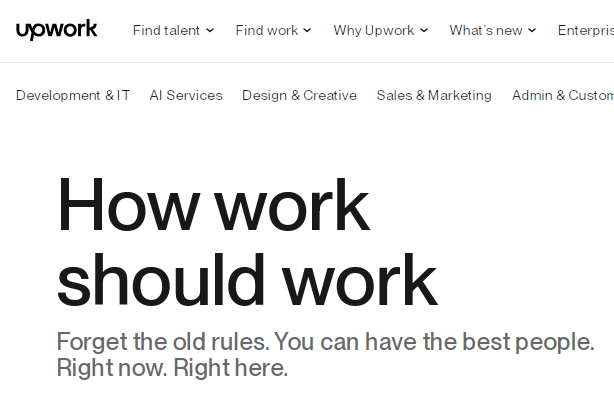Wondering how to leave your 9 to 5 job? A lot of people want to leave a 9 to 5 job. Not everyone actually manages it. You don’t want to just quit unless you have the financial means to cover yourself. So it’s a good idea to make a plan. How much money do you have to tide you over once you’ve quit and how long will it last? Before leaving it’s also worth checking your motivation. Unless you’re highly motivated as an independent, self employed person, you’ll need another job to cover your expenses.
Start looking at other jobs in your area/skillset. Sign up to some temp agencies. Reach out to your network and see what opportunities are about. It’s worth doing some leg work before you actually quit because if you find out later there’s no work around you’re in a much worst position than if you still income coming in from your job.
How To Leave Your 9 To 5 Job – Start A Side Hustle

A side hustle can give you confidence to quit a job but usually it will take a year or two to build up your side hustle into a reliable income. Don’t quit and expect to find a side hustle to support you within a month or two. It doesn’t work like that. Start the side hustle alongside your job. That way, you can fund it and get it moving more quickly.
An option is to start an online business, for example (get started here). Just don’t expect miracles without putting in the legwork first! Some people will throw in the towel at work expecting to make a go of some self employed, entrepreneurial venture. Many are disappointed as it can take years to achieve this, even with a job. Without one it’s much more difficult if you don’t have the funding for advertising and training etc.
A side hustle can be a great way to take the pain out of a job you hate. It gives you something to aim for and of course hope of an escape!
How To Leave Your 9 To 5 Job – Temp Jobs
Another optional way to escape a 9 to 5 you hate is to sign up to a temping agency. Temp agencies provide short notice workers in all sorts of fields. Use your CV to apply to as many as you can find. There’s also casual work too, which is often manual work. Look in your local neighbourhood for suitable temp or casual work which you think might be a good fit. If a job is really bad, some casual or temporary work might be a good fit and help you get out more quickly.
But remember you might feel the same way about your temp job pretty quickly too! So if your job is bearable, it might be worth sticking at it until you find a more solid alternative.
Go Part Time
Another potential alternative to completely leaving a job is to shift to another department or go part time. This is a softer way of quitting which doesn’t leave you as financially vulnerable if you don’t have a financial safety net. This can work if you have another income stream too. If you wanted to build up a side-hustle it also gives you more time to do so.
Often a job isn’t so bad if you’re not there all the time! So going part time, if that’s an option might be the way forwards.
Freelance
Freelance work is on a self employed basis and this can work too with either part time work or if you’ve built up some self employed income alongside your job for a while. Typically it can be a challenge to suddenly pick up freelance work, depending on your skillset. But there’s ways to find freelance work in lots of sectors and particularly online. Websites like Fiverr.com and Upwork.com offer freelance work for people with online skills of all kinds. So if you’re handy with the laptop you might be able to cut out a niche for yourself.

Start Saving
If none of the above are appropriate solutions it’s a good idea to start building some “buffer” money to give yourself some time off if push comes to shove and you find yourself really hating your work. If work is affecting your mental health, it’s definitely time to start looking elsewhere. But if there’s very little scope for another job, you are much better off with some buffer money to carry you for a few months than without it.
Most people are terrible with money and live right up to their means every single month, and then some. That means you’re constantly in the red, even with a regular pay check! Turn this around by cutting out spending on un-necessary items and setting up an automated monthly payment to a savings account. This is known as paying yourself first and is a major principle of the wealthy. Start with whatever you can afford, and think of it like a bill you’re paying. Over time you will accrue some savings and earnings from interest will accrue on top of it.

Building up a savings plan can give you hope for a better future if you’re struggling in a job you hate. So don’t discount it because sometimes a little hope is all you need to change things around. Once you start seeing money gather in a savings account you’ll think differently. It also gives you more self control, living below your means.
It might take some time, but building up some savings can give you more options. You can use it for a side hustle too, if you don’t have one already.
Access a free video series and learn more about how to start an online business from scratch here.
Make A Plan
With a plan to leave a job, you’re in a much better position than if you simply leave on a whim. Get started with a side hustle and start cutting back on spending, putting money aside for surviving self employment and a career switch. Set a date for leaving which gives you enough time to build up your side hustle and save some money. Ideally keep the job as long as you can, so you have money to invest in your other venture.
Leave only when you either can’t bear it anymore or are suitably financial cushioned – depending on your risk profile. Some people need to “burn their ships” so to speak and jump ship. This gives them the necessary drive and motivation to sort something out because there’s a lot riding on it. If you’re not motivated like this it’s better to hang on to a job while you build something else to replace your income. But if you need the “fear” sometimes it can be a motivator. If so, write an official letter of resignation and give it to your boss. This act alone can give you huge motivation. Once you take a step towards action, a whole host of things can help you. But if you sit on the sidelines, hoping things will improve, they often only get worse!
The phrase “burning your ships” dates from 1519, when a Spanish expedition led by Hernán Cortés landed in Mexico. Cortés knew his crew was already exhausted after the long sea journey. But he had to motivate them to succeed in the new land. So he ordered the burning of the ships they arrived in. No turning back now!